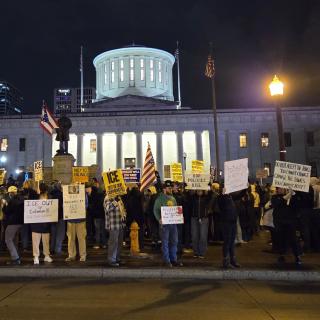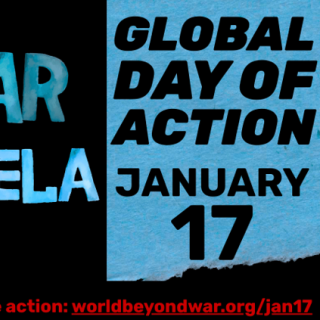Advertisement
In the early seventies I went to East High School and lived right smack in the middle of Mt. Vernon Ave and 21st, in a big ten room brick house. When I lived there the neighborhood was clean. People kept their lawns up and the streets clean. Adults watched out for the children roaming the neighborhoods and reported their bad behavior to their parents. Contrary to the common stereotype portrayed of black men at the time, my father was in the home, his brother was in his home, and just about everybody I knew had a father or father figure in the home.
In the eighties, Crack Cocaine was “dropped” into the Near East side area. HUD begin to outplace and outsource decent hardworking families, some who had lived there all of their adulthood, out of Poindexter Village. They replaced them with young, mostly single mothers. Some of these young mothers had friends that brought terror and fear to the village due to gang activity and drug activity that caused the “decent” people to move, those who could move, the elderly on fixed incomes had to stay and live in fear, while their landlord watched and did nothing.
In the nineties the entire area north to south between Nelson Rd and St. Clair and east to west between Livingston Ave and Fifth Ave became infested with gang and drug activity. Landlords didn’t seem to care who they rented their property too. Section 8 seemed to begin to reward landlords for slum properties, rewarding them by continuing to allow them to rent out property without ensuring that the property was kept up. HUD would take the Section 8 voucher from the resident for “not keeping the house in order, etc.” and then ignore the fact that the landlord didn’t bother to check on his own property to ensure it met the HUD standards. Then what happened, the resident couldn’t afford decent housing so lived in an even worst condition. And, the people who owned their homes, and kept them up, moved out of the neighborhood so then no one was keeping the neighborhood clean. Houses became boarded up. Seniors died off. Nobody cared.
Then came the gentrification move in the city. Let’s clean it up! How do we do that? Well, we start with getting everybody out of Poindexter Village. Let’s move them out to the suburbs, where its nice and clean, after all, it is a drug infested community. And then we can just tear it down and put in new buildings. While we’re at it, lets clean up the community in general. Let’s buy the property up cheap, fix it up and raise the property tax values and then sell them for a half a million dollars. Oh, those seniors that we moved out in the suburbs, that are stuck out there because there are no buses, there’s Senior Options and COTA Mainstream.
I still live in the Near East Side area and still get once a month, sometimes twice a month, a postcard asking me to sell my property. As I look around my neighborhood that once was a clean, well kept community I see homes that are boarded up due to the person who owned it died, homes that are empty with the grass overgrown. I see trash cans never pulled up from the street after trash pick-up for days, and I began to feel the double-edged sword of gentrification. I want to see the neighborhood cleaned-up. I want people to care about where they live and be responsible for their property.
When I ride through the streets where I used to live, play and was raised and I see the change in the faces, when I no longer see me, it causes me pain. Landmarks that I knew are no longer there and replaced with something that is foreign to me, and foreign only because it’s not familiar and out of place. Then I see homes in my area where I raised my children being restored and brought back to life and now I’m feeling happy and reclaiming a sense of pride in where I live because when all others moved out to a “better neighborhood” I stayed put because I love my home, my area and my people. I’m a city girl who loves a little bit of country and that’s what I have now.
So no, I’m not selling my home and although I hate the way gentrification rips apart families, communities and a way of life, I appreciate the cleaning up of my neighborhood. Thus, the double-edged sword of gentrification.



